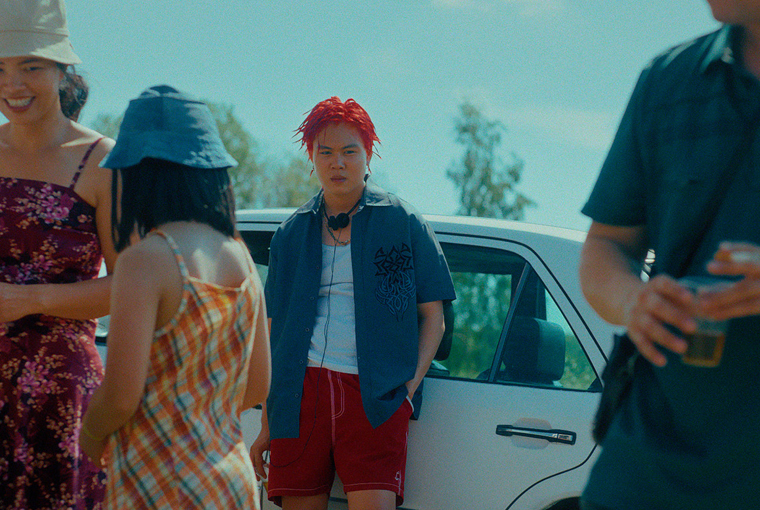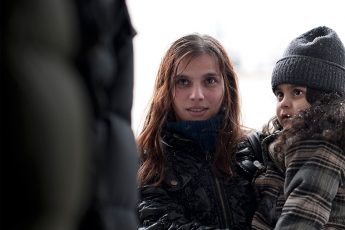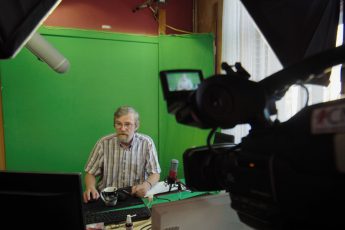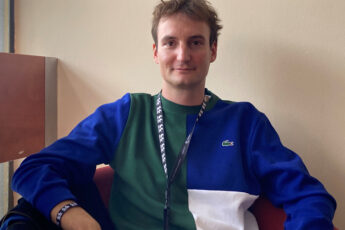Familiar Strangers
Dužan Duong’s Summer School, 2001 (Letní škola, 2001, 2025)
Vol. 155 (May 2025) by Moritz Pfeifer
Summer School, 2001 unfolds as a hyperlink cinema-style narrative, in the manner of early-2000s dramas such as Alejandro González Iñárritu’s Amores perros (2000), Steven Soderbergh’s Traffic (2000), and Paul Haggis’ Crash (2004), by weaving together multiple interlocked stories under one family’s roof. Director Dužan Duong structures the film as a triptych of chapters, each shot from a different character’s perspective, that intersect around a rooftop fall sending the youngest son Tai (To Tien Tai) to the hospital. As the film rewinds and replays events through each character’s eyes, the full picture of what happened gradually comes into focus. The result is a multifaceted portrait of a Vietnamese immigrant family in West Bohemia, with every chapter adding new context and revelations to the others.
Dung (Doan Hoang Anh), the father, runs a market stall but faces mounting debt and turns to a mobster tied to the community for help. Tai, the younger son, is supposed to be studying Czech over the summer but drifts between classes, friends, and boredom, until a prank goes too far. Kien (Bùi The Duong), the elder son, has just returned from Vietnam after years apart from his parents. Marked by his red-dyed hair and growing awareness of his sexuality, he drifts through a country he barely remembers and a family he no longer knows how to speak to.
Each chapter reframes the others, with shifts in tone and genre reflecting the fractured sense of time and belonging. The father’s segment thus embraces a nod to vintage crime dramas, Tai’s chapter exudes a lighter, coming-of-age energy, while Kien’s story slows down into moody, art-house introspection. This dynamic mix of styles gives Summer School, 2001 a neo-vintage flavor: it affectionately recreates the aesthetics of the early-2000s with nostalgic detail.
In portraying a Vietnamese family’s life in Czechia, Summer School, 2001 ventures into territory that domestic cinema has rarely explored. The Vietnamese Czech community has been next to invisible on film. Past attempts often exoticized or stereotyped Vietnamese characters – for instance, the crime drama Miss Hanoi (2018) centered on a Vietnamese detective who is primarily introduced as a novelty in a Czech setting, while the comedy On the Roof (2019) paired a Czech protagonist with a Vietnamese immigrant mainly to impart life lessons. Such works often focused on Vietnamese market traders or drug mafias for sensational appeal. Summer School is rooted within the community, made by a director who is Czech-Vietnamese himself and who draws on his own upbringing.
A key element in the film’s more conscious engagement with exoticism is the character of Kien. Within his family and community, Kien becomes a kind of internal “exotic” element – he is both Vietnamese and, in some ways, a stranger. Having grown up abroad, he embodies cultural otherness even among his own diaspora kin. His flaming red hair immediately marks him as different. As it’s revealed that Kien is gay, another layer of perceived exoticism is added to his character. This conflict could have been given more room to explore topics of Czech-Vietnamse relationships, not only between majority and minority, but also within the diaspora itself, where belonging may be fractured. Kien’s difference, however, is reduced to a character trait rather than being explored as a symptom of a broader conflict.
At times, it thus feels as if the film is built from a festival checklist: queer identity, racial stereotyping, generational conflict, the immigrant grind. While Summer School provides a fresh setting for these topics, it also raises questions about whether it’s chasing recognition through representational display. For a film about difference, it may be trying too hard to be embraced.




Leave a Comment